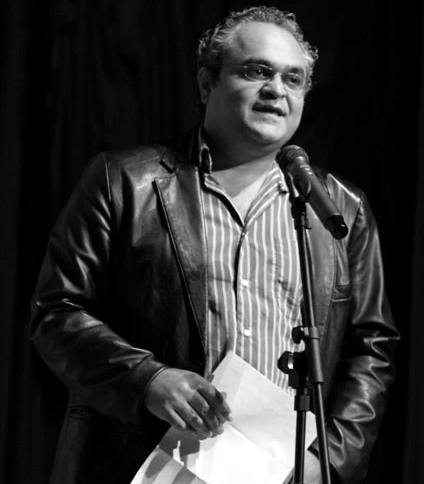|
|
| Payami, Babak
 |
Date of birth
1966, Tehran, Iran
Mini biography
Babak Payami (1966, Tehran, Iran)
Babak Payami (born 1966 in Tehran) is an Iranian film director.
Born in Tehran in 1966, Baback Payami studied cinema at the University of Toronto during the early 90’s.
In 1998, he returned to Iran after an almost two decade to produce and direct his debut “One More Day” or “Secret Ballot”.
This flim describes what happens on election day when an idealistic young woman lands on a remote island to serve as the election agent. She faces many obstacles, not the least of which is the chauvinistic soldier unwillingly assigned to assist her.
Payami recalled how he thought of the story: “It was a compilation of observations that you make when you look around and you get more engaged.
It all crystallized through an idea by Mohsen Makhmalbaf [“Kandahar”], who made a semi-documentary called “Testing Democracy.” Payami continued,
"Basically I took this idea and ran with it. I felt that the element of the absurd and the comic were very good balancing factors in not being judgmental or waving political flags, but in portraying issues that are as universal as they are specific to the situation in Iran.” He continued,
“The film, in a way, is a road movie about the problems of the integration process. It portrays the alienation between the establishment and the people—the lack of communication and the lack of understanding. I used the convenience of the people on Kish Island speaking different languages for the film’s goals. Iran is historically a multicultural country. From any point in mainland Iran, if you travel 200 miles in any direction, people speak completely different languages. You have anywhere from Mongolian, Kurdistani, Arabic, Afghani, Azerbaijani, you name it. That has been one of the main distinguishing features of Iran as a country compared with many of its neighbors,” Payami said. The director said many Iranians would be surprised by the 2000 U.S. presidential election, and not simply because of the contested outcome.
“What is striking to people at large in Iran is that the Iranian people are used to figures of 95 percent electoral participation and 99 percent winning candidates. It’s a little difficult to fathom 20 percent turnout,” he said.
“There are a lot of misconceptions in that direction as well. People would automatically assume that the larger the numbers, the more democratic.… That American mentality of bigger is better has seeped across the world, I suppose,” he added and laughed. “ Then again, Iran is a very diverse country.
One would tend to generalize and say this is the way Iranians think. There are a lot of different mentalities in Iran. I appreciate that, and I think people should appreciate this diversity in people’s approach to different issues. There are some people who feel very strongly in favor of the U.S. and some people who feel very strongly in opposition to the U.S. And there are a lot of people in between.” Payami reflected on his background as an expatriate of Iran and how that background influenced the making and overall vision for “Secret Ballot.”
“Obviously, when you live inside a situation over time, there is a tendency to be desensitized toward certain aspects of life around you. When one enters with a fresh mind—without the gradual, slow influence—then one would be able to provide hopefully a different perspective, not necessarily a correct perspective, but just a different perspective,” he explained.
“It’s with that relativity in approach, perspective, form and delivery that hopefully, on the one hand as a filmmaker, one can at least contribute to the attempt of flipping the page stylistically as far as Iranian cinema is concerned.
And from a fanatic’s standpoint, one can maybe offer a fresh perspective on the situation, maybe encourage the appreciation of diversity and to try to steer away from looking at everything black and white, right and wrong, with us or against us—more toward a tendency of looking at things with a level of complexity and not using simple-minded formulations in dealing with the situation.”
In June 2003, Baback Payami was arrested by plain clothed officials and was interrogated about his latest film, “Silence Between Two Thoughts.” His offices in Tehran were raided and all of the original material was confiscated.
A low quality digital reconstruction of the “Silence” premiered in the Venice Film Festival upstream competition lineup and was subsequently released in theatres and on DVD in Europe. Baback Payami never recovered his material and did not returned to Iran. He is currently working on his English language feature film projects in Canada. —Wikipedia
Director - Selected filmography
-
752 Is Not a Number (2022)
-
Silence Between Two Thoughts | Sokoote beine do fekr (2003)
-
Secret Ballot | Raye makhfi (2001)
-
One More Day - Yez rouz bishtar (1999)
|
|
|
| Choose an item to go there!
|
|

